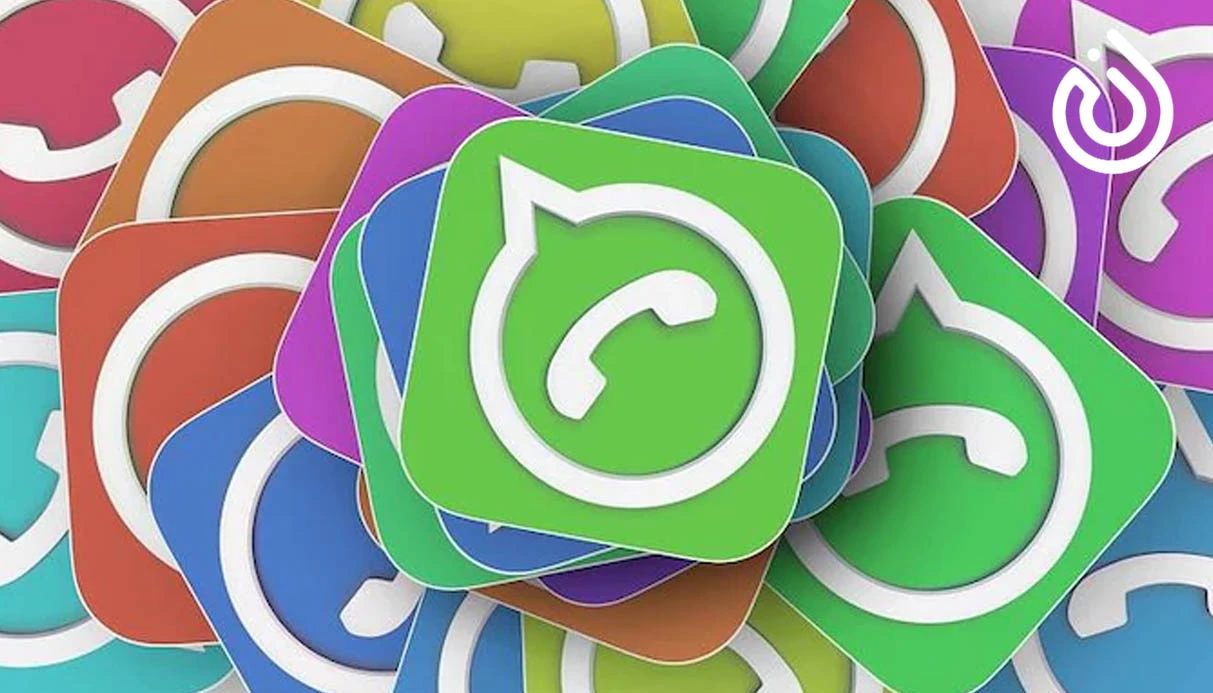.webp)

WhatsApp is one of the world’s most popular messaging apps, used by billions to communicate. But with widespread use comes concerns about privacy and exposure of personal information. One frequent question among users is: “Can I hide my phone number on WhatsApp?”
In this article, we’ll explore that question in depth. We’ll examine WhatsApp’s design, current privacy settings, workarounds, risks, and what the future might bring. By the end, you’ll understand whether it’s possible to hide your number, what compromises you must accept, and alternatives to preserve your privacy.
Why People Want to Hide Their Number
Before diving into technical details, let’s examine the motivations people have for hiding their WhatsApp number. Understanding these helps us judge whether a workaround is truly suitable.
- Avoiding Unwanted Contact
If your number is public or shared widely, strangers or unwanted individuals can message or call you via WhatsApp. - Preventing Spam & Telemarketing
Phone numbers can be harvested and used for spam, robocalls, or unsolicited WhatsApp messages. - Maintaining Anonymity
For users who interact in public forums, social media, or trading environments, hiding contact details can protect identity. - Separating Personal & Business Communication
Some people want a “public” number for business or online presence, and keep their real number private for friends and family. - Minimizing Exposure from Data Breaches
If a data leak occurs, having fewer services directly tied to your personal number reduces risk.
All these are valid privacy goals but whether they are achievable depends on how WhatsApp is designed.
How WhatsApp Uses Your Phone Number
To understand if hiding is possible, we need to see how WhatsApp is built around phone numbers. Here’s how the system works:
- WhatsApp accounts are strictly tied to phone numbers. When you register, you verify the number via SMS or a voice call.
- That number becomes your primary identity in the WhatsApp ecosystem (you can’t sign up with an email).
- When others see your contact in WhatsApp (or add you), your number is the key identifier.
- Even if someone hasn’t saved your contact, when they receive messages or you appear in a group, your number is visible.
- In WhatsApp’s own documentation, they confirm: “There is no way to hide your phone number from someone” even if the recipient “has not saved your number.
- Many tech writers also assert: “You can’t hide your phone number. WhatsApp requires a phone number to register.
Because the phone number is the central identifier, WhatsApp does not, by default, offer a setting to conceal your own number from other users.
Official WhatsApp Policy: Can You Hide Your Number?
Let’s look specifically at what WhatsApp itself says (i.e., the source, not rumors or blogs).
- In their Privacy & Security settings, you can control who sees your Last Seen, Profile Photo, About, Status, and group invitation settings. But not the phone number.
- Their FAQ explicitly says:
“There is no way to hide your phone number when using WhatsApp. Your phone number will still be visible even if the recipient has not saved your number in their contact list. - In other words, WhatsApp does not provide a built in “hide number” toggle.
However, in mid 2023 there have been reports that WhatsApp is working on a privacy feature that limits visibility of your number to only those who already have saved it. Some news outlets reported:
“WhatsApp allows you to hide your phone number … restricts your phone number visibility only to those who have saved you as a contact.”
That suggests a possible upcoming change, but as of now , this feature is not universally deployed or confirmed by WhatsApp’s official settings.
Thus, the current policy is: you cannot fully hide your WhatsApp number from everyone, but you can limit exposure in other ways.
WhatsApp Privacy Settings You Can Adjust
While you can’t hide your number, WhatsApp does give you some control over other visibility and privacy aspects. Using these wisely helps reduce unwanted exposure.
Here are key privacy settings available (Android & iOS):
| Setting | What It Controls | Options | Tips & Implications |
|---|---|---|---|
| Last Seen / Online | When others see your last activity or “online” status | Everyone / My Contacts / Nobody | If set to “Nobody,” you also can’t see others’ Last Seen. |
| Profile Photo | Who sees your avatar image | Everyone / My Contacts / Nobody | Useful to hide your identity from unknown people. |
| About | The modest “About” text under your name | Everyone / My Contacts / Nobody | Helps limit background info exposure. |
| Status | Who can see your status updates (stories) | My Contacts / My Contacts Except / Only Share With | Good to exclude unknown people. |
| Read Receipts | Blue ticks after someone reads your message | On / Off | Turning off means you also can’t see others’ read receipts, and group chats still send receipts. |
| “Add to Groups” / Invitation | Who can add you to groups | Everyone / My Contacts / My Contacts Except | Helps avoid being added to unknown or spam groups. |
You can find these under Settings → Privacy in WhatsApp.
By tightening these settings, you reduce how much of your profile and activity others can see though your number remains visible.
Workarounds & Alternatives
Although you can’t fully hide your number via built in settings, there are a few strategies (with trade offs) to approximate that effect. Below are the most common ones.
- Use a Virtual / Secondary Number
One of the most common methods is to use a virtual number or a secondary phone number for WhatsApp.
How it works:
- Acquire a virtual number via services like Google Voice, TextNow, etc.
- Use that number to register or re register your WhatsApp account.
- Anyone who communicates with you via that WhatsApp will see the virtual number not your real number.
- Your real personal number remains undisclosed.
Pros:
- Decent layer of anonymity.
- Separates your private number from your WhatsApp identity.
Cons:
- Some virtual numbers are blocked by WhatsApp or flagged.
- If you lose access to the virtual number, you may lose access to your WhatsApp account.
- It’s not “hiding” your number per se just using a different one.
Many guides on “how to hide WhatsApp number” suggest this method.
- Use a Landline / VoIP Number
In territories where WhatsApp allows alternative verification, you can use a non mobile number (landline or VoIP) and receive the verification via voice call instead of SMS.
Steps:
- In the initial setup, wait until SMS option times out.
- Select “Call me” or equivalent to get a voice call with the verification code.
- Use that number to register your WhatsApp.
Note: This number will still show to others. But it might better mask your mobile number.
- Changing Your Number
A less “hiding” approach, but sometimes useful: change your WhatsApp number to one that doesn’t correspond to your main number.
WhatsApp has a Change Number feature (under Account settings) which migrates your account to a new number. You can choose to notify contacts or not.
However:
- This doesn’t hide the number it replaces one number with another.
- Your new number will show to anyone who gets in touch.
- Temporary / Disposable Numbers
There are services which provide “burner” or temporary phone numbers. You could use one of these to register WhatsApp for short term or limited use (e.g., for trading, marketplace contacts, casual social media interactions).
Again, the same caveat: the number you use will show to whoever contacts you. Also, some of these numbers are blacklisted by WhatsApp.
Limitations and Risks of Workarounds
Every workaround has its drawbacks. When trying to “hide” your number via indirect methods, be aware of:
- Reliability: Virtual numbers or burner numbers might get blocked, revoked, or expire.
- Account Recovery Risks: If you lose access to that number, you may lose WhatsApp access (two step verification, verification fallback, etc.).
- Transparency vs Deception: If someone asks for your real number and you refuse or substitute, it might hamper trust or relationships.
- Legal / Policy Issues: In some regions, using fake or disposable numbers may conflict with terms of service or local telecom laws.
- Group Exposure: Even if using a secondary number, if you join public groups, your number may be seen by many participants.
- False Sense of Security: Some people assume “hidden number = privacy,” but many other metadata (IP address, timestamps, backup, etc.) still exist.
So while workarounds help, they don’t offer bulletproof privacy.
Tips to Protect Your Privacy (Even if Number Is Visible)
Given that you can’t fully hide the number, the next best thing is to ensure strong privacy hygiene. Here are practices to protect yourself:
- Use strong two step verification (PIN) in WhatsApp settings.
- Regularly limit profile exposure (profile picture, status, about) to contacts only or “nobody.”
- Selective group participation avoid joining large public groups with strangers.
- Block unknown numbers immediately.
- Avoid displaying your number publicly (social media, websites) if possible.
- Use app locks or your phone’s app lock feature so that even if someone opens WhatsApp, they can’t see it.
- Encrypt backups (if supported) so that your chat history is not exposed.
- Keep your app & OS updated to benefit from new privacy features.
- Be cautious with sharing your QR code (WhatsApp QR can link directly to your contact).
- Disable “Share my account info with Facebook/Meta”, if present, to limit cross platform sharing (if available in your region).
By combining these, you reduce how much of your identity or activity others can glean even though your number stays visible.
What’s New: Recent WhatsApp Privacy Features
WhatsApp is actively developing new privacy enhancements. Here are a couple of features to watch:
- Secret Code / Lock Chats: WhatsApp introduced a “Secret Code” feature that allows you to hide select chats behind a code. These hidden chats do not show up in the main chat list unless you type the secret code into the search bar.
- Usernames / Contactless Messaging: Some rumors and reports suggest WhatsApp is planning to allow users to create usernames, so that communication might not require revealing your phone number. This is not yet fully confirmed or deployed universally.
- Restricting number visibility to contacts: As mentioned earlier, there is speculation that WhatsApp may allow your number to be visible only to those who have already saved it.
If WhatsApp rolls out a feature that truly hides your phone number (or replaces it with usernames), that would change the landscape significantly.
Future Outlook: Will Hiding Numbers Become Native?
Given privacy demands and competition (e.g., Telegram, Signal offering more anonymity), it’s plausible WhatsApp will evolve. Some indicators:
- WhatsApp has experimented with “usernames” to decouple identity from phone numbers.
- Their move to allow “Secret Code / chat locking” suggests they are building more granular privacy layers.
- WhatsApp’s parent company Meta has incentives to retain users by offering more privacy, especially in regions more sensitive to data protection.
However, it is uncertain when or if a full “hide number” feature will roll out globally. Even then, backward compatibility, adoption, and enforcement would be challenges.
So while the future might bring such features, in the meantime the workarounds and settings we discussed remain your best options.
Summary & Recommendations
This comprehensive article answers a common question: “Can I hide my WhatsApp number?” Explore WhatsApp’s privacy settings, official and workaround methods, and practical tips to protect your phone number. Learn how using or even buy virtual number for WhatsApp can help keep your personal number private while enjoying a safer messaging experience.
.webp)
.webp)

Comments